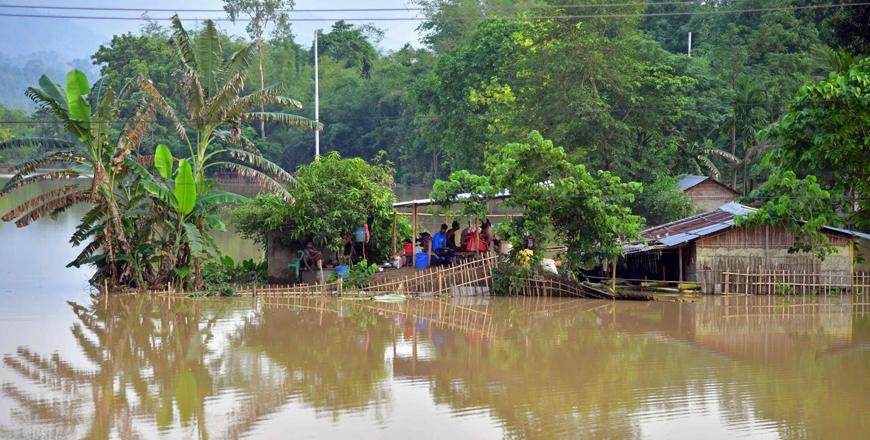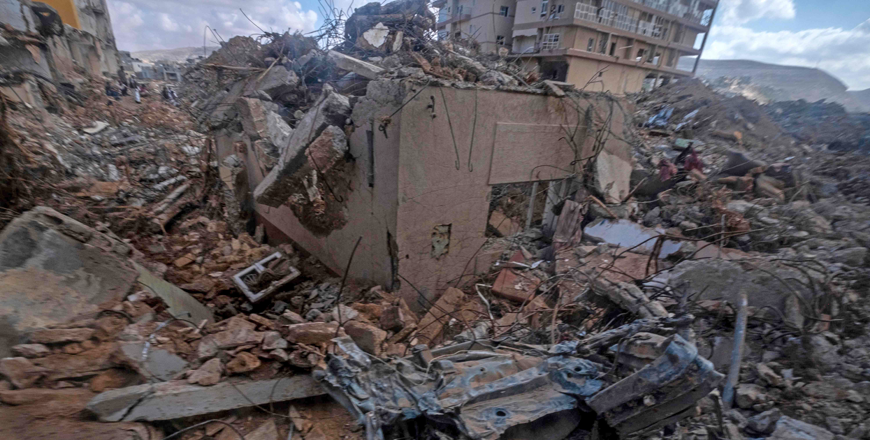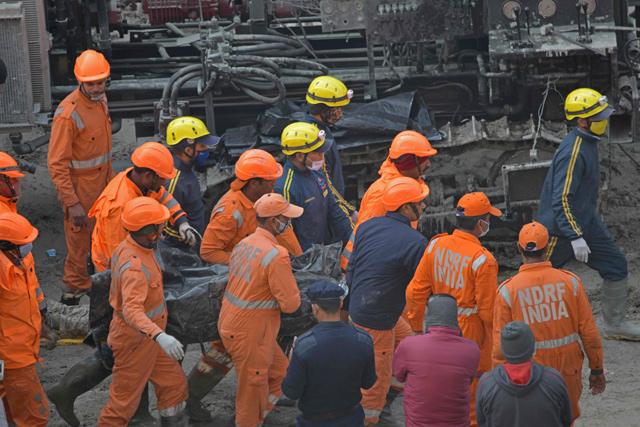You are here
One month on, traumatised Belgian flood victims still reeling
By AFP - Aug 14,2021 - Last updated at Aug 14,2021

This photo taken on Friday shows mangled cars and a damaged bridge in Trooz, one month after the river Vesdre burst its banks engulfing the town in floodwaters (AFP photo)
TROOZ, Belgium — One month after huge storms battered northwestern Europe and forced an unprecedented wave of floodwater through densely populated valleys, Belgian residents are still in shock.
The government of Wallonia has collected 155,000 tonnes of debris but red-brick industrial villages are still cluttered by smashed cars, uprooted trees and furniture ruined by mud and heating oil.
Around the world, July was the hottest month since records began, according to US government scientists, and the latest UN report on the climate crisis predicts heavier rains for northern Europe.
What this means for many communities can already be seen in the valley of the Vesdre where, a month after the deluge, soldiers are still feeding dozens of devastated residents from a field kitchen.
Municipal crews and contractors are shoring up river banks and railway embankments and the heavy trucks clearing tangled waste queue along the narrow roads. Gangs of volunteers have given up summer holidays to help out.
The cheery solidarity shown by the well-wishers — digging mud out of a sodden schoolhouse just weeks before the children are due to return — has been heartening for those living beside the river.
But the shock of July 15 has not worn off, and residents and experts alike agree it will take years to restore life in the valley.
Monique Roland, 79, was waiting to sign off on the sale of her third floor appartment, but the lower floors of the block are ruined, her heating is off and rebuilding work will take months.
“For me, it felt like the end of the world. Since then, I’ve had a little depression. I’m shattered,” she told AFP as she sat with neighbours to eat a plate of pasta prepared by the Belgian army Catering Corps.
Sleepless nights
Charles Clessens, retired telecoms worker, saw the road in front of his riverfront house collapse into the Vesdre and a three metre wall of water pour into his cellar and rise midway up his ground floor walls.
His family escaped through the back garden and part swam to a neighbour, who helped them up a ladder to safety. Clessens is now home, but his dogs are traumatised, his walls covered in mould spores and much of his furniture ruined.
He was overwhelmed by the sympathy of the volunteers who stopped by to help him clear up, and treasures the photos he took with groups from across the country.
The 74-year-old insists he will be OK, but admits to trouble sleeping.
“I wasn’t particularly frightened the day afterwards, but now we’re 30 days later. The aftershock came after a few days, and it’s mainly tiredness,” he said, showing reporters around his home. “I sleep for an hour, then I wake.”
Retirees face an uncertain future and an open-ended effort to rebuild, but for younger Trooz residents there is a more concrete timescale — and an immediate challenge.
Schools in Belgium are due to reopen after the summer break in three weeks, and the Free School in Fraipont — which lies on the bank of the Vesdre between trees and a partly collapsed railway embankment — is still filthy.
Volunteers organised by social services in the town of Soignies, 100 kilometres away, are washing out the main hall, and a crew from a fellow free school in Flanders is digging mud out of a classroom.
The now deceptively gentle river flows by the scene, but Robert Serrurier, a school organising committee member who was himself a pupil four decades ago has never seen a flood like it.
“An enormous amount of work has already been done, but the problem is the deadline of September 1. And there’s still a lot left to do. It’s not going to be simple,” he said.
Behind him, a huge stack of wet timber is the remains of the floorboards pulled out of a ruined classroom. He remembers the scene when school organisers turned up after flood reports.
“It was the 15th, of course, when we learnt that there was flooding, but we did not realise how much,” he said. “So we arrived here with a squeegee and a bucket and then you realise you’re ridiculous, because you need a bulldozer.”
Related Articles
SYLHET, Bangladesh — At least 4 million people have been affected by the worst floods in Bangladesh’s northeast for nearly two decades, the
DERNA, Libya — In Libya’s flood-hit city of Derna, the Mediterranean Sea breeze mixes with the nauseating stench of human remains buried und
TAPOVAN, India — Rescuers on Sunday pulled the first bodies from a blocked tunnel at a power complex in a northern Indian valley devastated



















